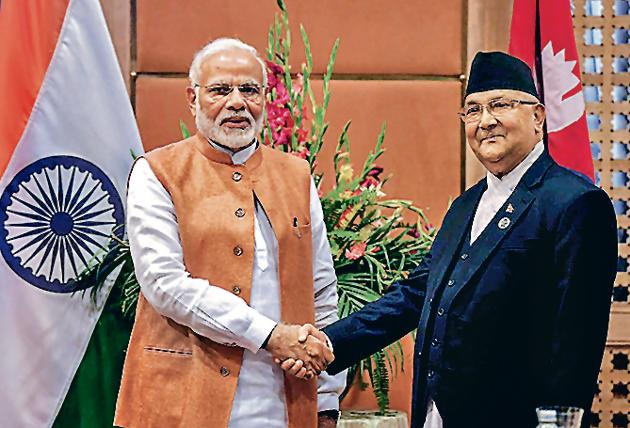India must review its Nepal policy
New Delhi can pretend there are no problems in India’s relationship with its northern neighbour, but the tensions, beneath the surface, will continue to deepen
It has been a busy fortnight on the India-Nepal diplomatic front. Prime Minister Narendra Modi visited Kathmandu for the Bimstec summit at the end of August and had what was billed as an extremely warm and productive bilateral conversation with Prime Minister KP Oli. The ruling Nepal Communist Party chair, Pushpa Kamal Dahal ‘Prachanda’ (Mr Oli is the other chair of the party), visited New Delhi over the weekend and said he was touched by the honour bestowed on him here. But there were two decisions which emerged as disturbing signals for New Delhi. Nepal signed an additional protocol on transit with China, which would give the country an access to Chinese ports. It is legitimate for any country, especially for a landlocked one, to seek to diversify its options. But the fact that this happened within an overall context of China’s increased political and economic presence in Nepal raised eyebrows in New Delhi. Second, Nepal — after having signed on to a joint military exercise of Bimstec, which kicked off in Pune on Monday — pulled out because of an internal political criticism. An upset New Delhi told Kathmandu that this was not appropriate and has put the grouping in an embarrassing position.

So what is going on? Is there warmth and cordiality or distance and a chill in India-Nepal ties? To understand this, it is important to go back to the Nepal elections of late 2017. The Left Front of Mr Oli and Mr Prachanda won the polls on a strong nationalist platform — with the declared intent of redefining the “special relationship” with India, which meant diminishing ties with India, but deepening it with China. Beijing also backed this alliance and the eventual merger of the two Communist parties. New Delhi, however, made peace with the electoral mandate. And it went out of its way to warm to Mr Oli, and reassure him that India will not undermine the government. Mr Oli played along, and made his first visit to India.
So there was a normalisation in bilateral ties, but only because India substantially narrowed down the manner in which it defined its interests in Nepal. This has diminished its leverage further. On the other hand, Oli’s fundamentals — scepticism of India, willingness to cater to the ultra-nationalist sentiments at home, and desire to deepen ties with China — remain the same. New Delhi can pretend that there is no problem. But till it reviews its Nepal policy, even as the warmth for public consumption will continue, the tensions, beneath the surface, will continue to deepen.






